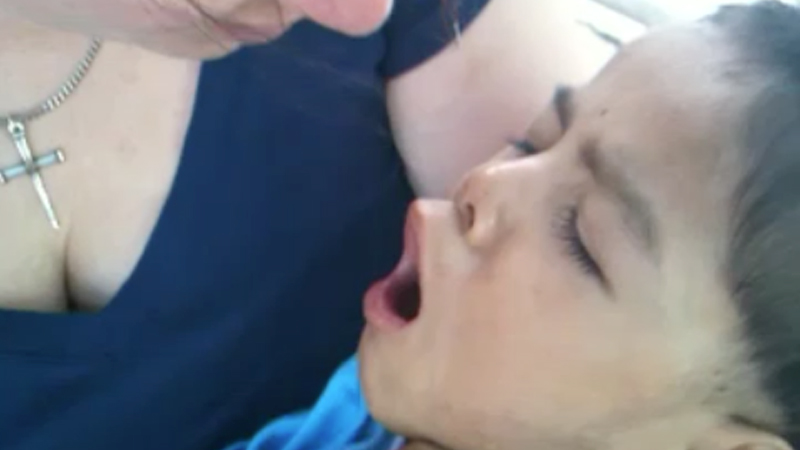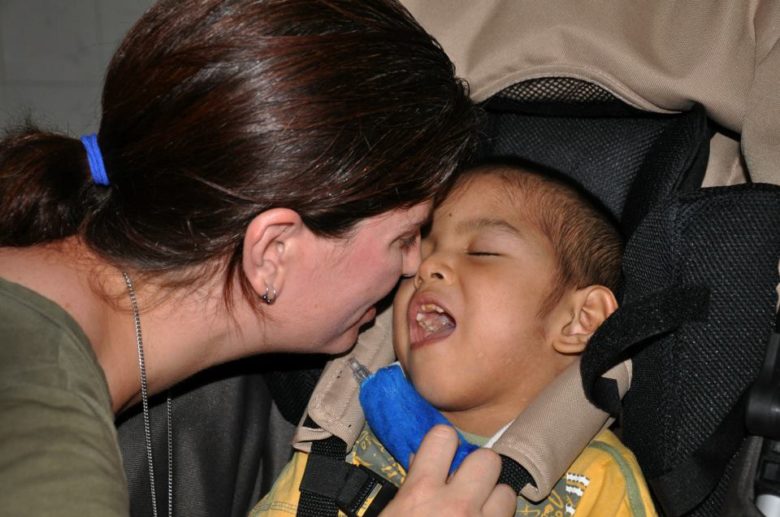At 2am Friday morning, after a day filled with kisses, playing and being grouchy about eating his lunch, and hours after I kissed him goodbye after tucking him into his crib, my beloved Sumnang spiked a fever, suffered a grand mal seizure and died en route to the hospital.
The inspiration for Safe Haven, the boy who stole my heart when I first saw him– it does not seem possible that I have just placed jasmine and incense over his white draped shroud and watched them cremate him.
We sat together first, in the tiny chapel of the Sisters of Charity Orphanage, where they had lovingly wrapped him in white linen, covered him with yellow flowers and surrounded him with candles. His sweet little face was peaceful as we waited for a local monk to agree to escort him to the place of cremation.
For three hours I sat in silence, in stunned disbelief. Only yesterday, I had talked about the possibilities for Sumnang to really make progress once Safe Haven had opened and he could have therapy and care full time. Yesterday, I held him in my arms while we played a Khmer version of “ring around the rosy”. Yesterday, I coaxed him to finish his bananas even though he was giving me his grumpy face about eating. Yesterday, I kissed him good night and told him “See you tomorrow.”
At the pagoda where the cremation took place, we laid out Sumnang on a mat and uncovered his face, placing jasmine, incense and candles around his body. The sisters led everyone in prayer and we each planted incense in the sand-filled vessel at his head while offering up our own prayer. Then they carefully recovered his face, picked him up and carried him to the cremation chamber.





